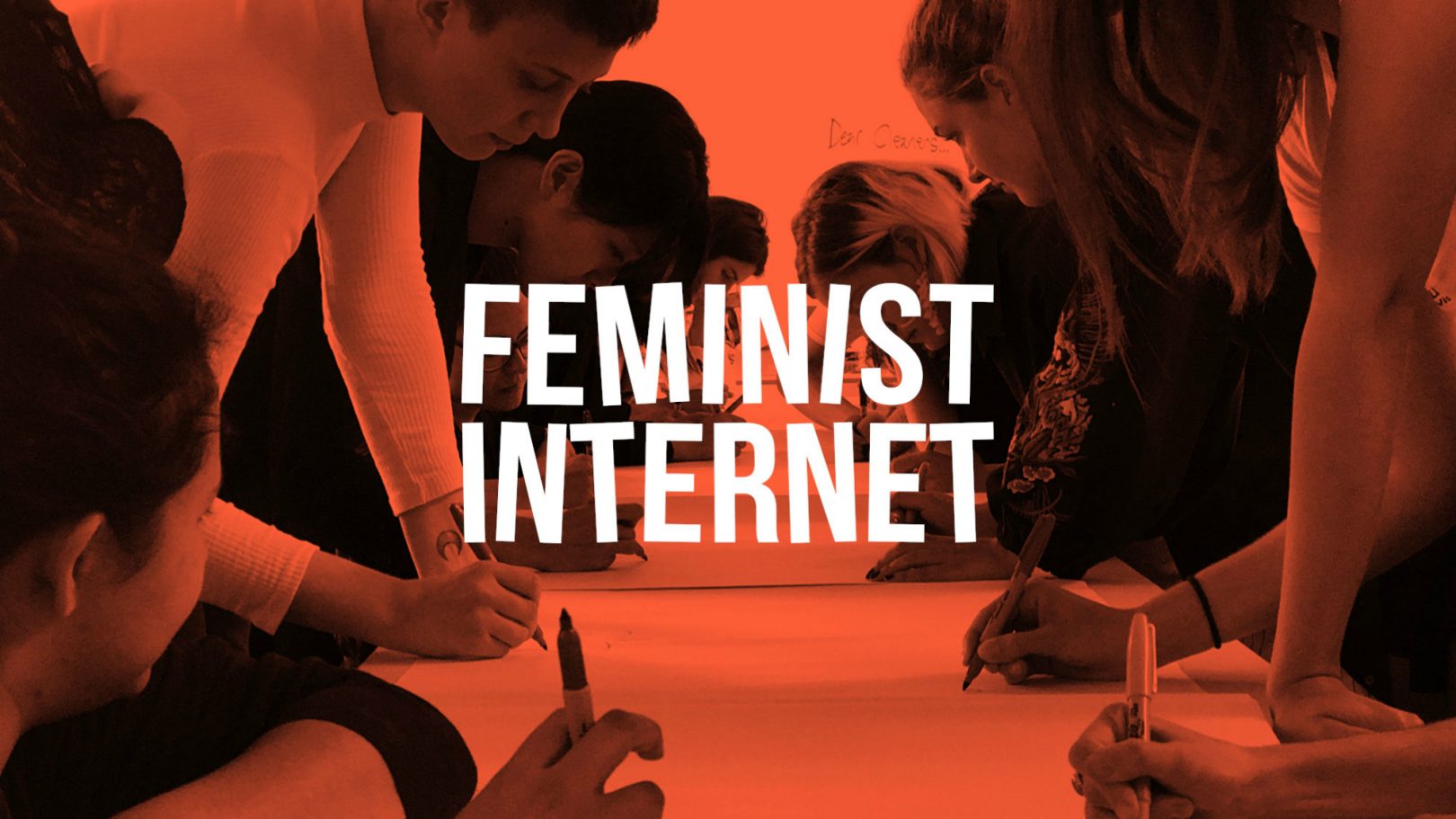
Exciting things are happening with Feminist Internet, a movement co-founded by a group of artists and designers that include MA NE alumni Rhiannon Williams.
Working to advance internet equalities for women and other marginalised groups through critical practice, Feminist Internet has recently been selected for a fellowship with UAL’s Creative Computing Institute and awarded a residency at Somerset House.
Read more about that here Somerset House Feminist Internet Residency
Last week we caught up with Rhiannon Williams. She shared insights from the latest Feminist Internet workshop “Designing a Feminist Alexa” with us.
“Online equality is at the heart of Feminist Internet’s work and beliefs, so when we were fortunate enough to get a Fellowship with UAL’s Creative Computing Institute we decided to hold workshops for ‘Designing a Feminist Alexa,’ working also with creative innovation firm Comuzi.

Helping students to design and prototype empathically thought-out Personal Intelligent Assistants, (PIAs) the workshop was motivated by an awareness of how designer bias can impact the way artificial intelligence and other forms of technology make decisions.
As well as drawing conclusions from biased societal data sets, AI personal assistants are almost always given an unnecessary female identity, do not have any means of re-educating or responding constructively to abusive language from their user, and rarely are designed to meet the needs of diverse and disadvantaged groups of people.
These factors among others lead to AI bots that reinforce the subservient female stereotype and that are not designed to treat all users equally, and in order to challenge this the studio had two clear aims in mind whilst designing: to meet a meaningful user need, and to promote equality for women and other marginalised groups.
During the first workshop the students came up with some incredibly thoughtful PIA prototypes that responded to genuine human needs – they considered the appearance of the device, its tone of voice and how it fit into the narrative of a designated user’s daily routine.
Even as prototypes these PIAs went beyond simple tasks, consoling, educating and playing music for their users, and I cannot wait to see the outcome of the November workshop!”
Read more about Feminist Internet – Designing a Feminist Alexa in the Marie Claire article here.
There is also a Feminist Internet Podcast in the pipeline, supported by the UAL Creative Computing Institute, exploring the theme of recording spaces – so stay tuned!